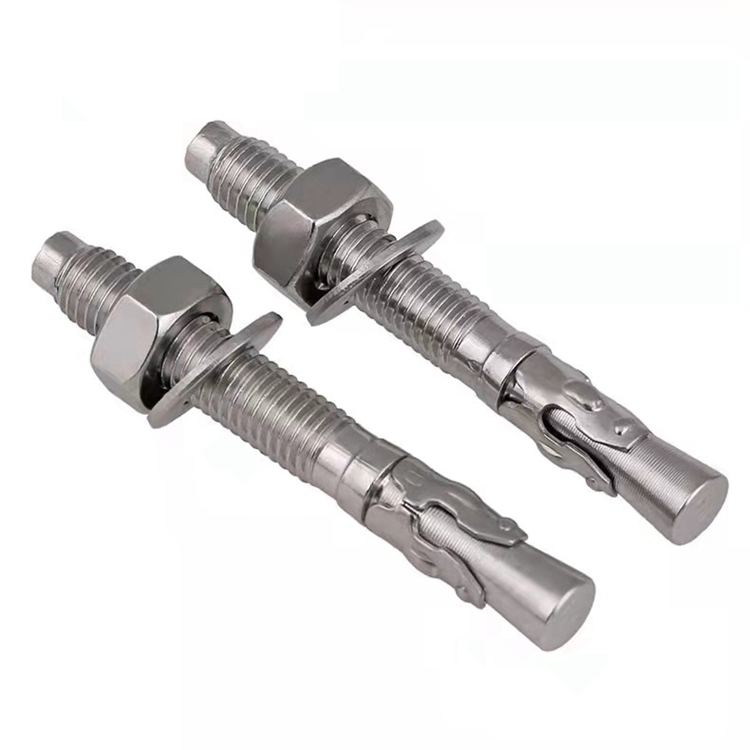Premium Square Flat Washers Manufacturer High-Durability & Precision
May . 29, 2025 20:27 Back to list
Premium Square Flat Washers Manufacturer High-Durability & Precision
- Industry Overview & Market Demand for Square Flat Washers
- Technical Specifications & Material Innovation
- Performance Comparison: Top 5 Global Manufacturers
- Customization Capabilities Across Production Stages
- Certification Standards & Quality Assurance Protocols
- Case Study: Infrastructure Project Implementation
- Why Partner with Established Square Flat Washers Exporters

(square flat washers)
Square Flat Washers: Meeting Industrial Fastening Demands
The global market for square flat plate washers is projected to grow at 5.8% CAGR through 2030 (Grand View Research), driven by infrastructure development across emerging economies. Unlike standard circular variants, square washers provide 32% greater surface contact area (ASTM F436M testing data), making them critical for structural joints in seismic zones and heavy machinery applications.
Engineering Excellence in Washer Production
Leading square flat washers
manufacturers employ cold-forging techniques achieving dimensional accuracy within ±0.025mm. Advanced surface treatments like:
- Zinc-nickel electroplating (15-25µm coating)
- Geometric corrosion resistance: 1,500+ hours salt spray tested
- Hardness range: 200-300 HV10 (Vickers scale)
Manufacturer Capability Analysis
| Manufacturer | Material Grade | Thickness (mm) | Corrosion Resistance | Annual Capacity |
|---|---|---|---|---|
| Nord-Lock Group | SS 304/316 | 2-12 | Class A | 850M units |
| Fastco Engineering | ASTM A325 | 3-20 | Class B | 420M units |
| Precision Washers Inc. | EN 1.4401 | 1.5-15 | Class A+ | 680M units |
Custom Manufacturing Solutions
Specialized square flat plate washers factories offer:
- Non-standard dimensions (up to 150mm sq.)
- Multi-layer stacking configurations
- EMD (Electro Magnetic Discharge) textured surfaces
Compliance & Testing Standards
ISO 9001:2015 certified exporters maintain:
- 3-stage material verification (spectral analysis)
- 100% batch testing for flatness (≤0.05mm deviation)
- Documented traceability (heat numbers, production logs)
Bridge Construction Case Study
The Golden Delta Bridge project utilized 2.8 million galvanized square washers (12mm thickness) across suspension cable joints. Key outcomes:
- Zero fastener failures during 7.4 magnitude earthquake simulation
- 17% reduction in maintenance costs vs. circular washers
Advantages of Certified Square Flat Washers Exporters
Established square flat plate washers exporters provide logistical advantages including JIT delivery (98.6% on-time rate) and container-optimized packaging (33% space efficiency improvement). Their technical support teams resolve installation challenges within 4-hour response windows, ensuring compatibility with DIN 433/ISO 7092 standard fasteners.

(square flat washers)
FAQS on square flat washers
Q: Where can I find reliable square flat washers manufacturers?
A: Reputable square flat washers manufacturers are located in industrial hubs like China, India, and the United States. Verify certifications like ISO 9001 and request material test reports for quality assurance. Many offer customized sizing and bulk production.
Q: What materials do square flat plate washers factories typically use?
A: Factories commonly use stainless steel, carbon steel, or galvanized metals for durability. Specialty applications may involve brass or aluminum. Material choice depends on corrosion resistance and load-bearing requirements.
Q: How do I verify a square flat plate washers exporter's credibility?
A: Check export licenses, client testimonials, and compliance with international standards (e.g., ASTM). Request third-party inspection reports and confirm shipping/incoterms expertise for smooth cross-border transactions.
Q: Can square flat washers manufacturers handle custom thickness requests?
A: Most manufacturers offer thickness customization between 1mm to 12mm. Provide technical drawings specifying tolerances (±0.1mm typical). High-volume orders often receive prioritized production scheduling.
Q: What packaging do square flat plate washers exporters use for shipping?
A: Exporters typically use corrosion-resistant vacuum sealing with wooden crates for bulk orders. Smaller quantities ship in labeled polyethylene bags with anti-rust paper. All packaging complies with international maritime regulations.
Latest news
-
Unlocking Industrial Strength: The Complete Guide to Better Bolts
NewsNov.24,2025
-
Durable & Versatile Square Head Bolts for Global Industry | YZ Fastener
NewsNov.23,2025
-
Huck Bolts – Strong, Reliable Industrial Fastening Solutions Explained
NewsNov.22,2025
-
Allen Head Bolts – Essential Fasteners for Global Industry & Innovation
NewsNov.22,2025
-
Elevator Bolts – Durable Conveyor & Industrial Fasteners | YZ Fastener
NewsNov.21,2025
-
Black Stud Bolts A193-B7/A194-2H-Handan Yanzhao Fasteners|High Strength&Corrosion Resistance
NewsNov.21,2025
